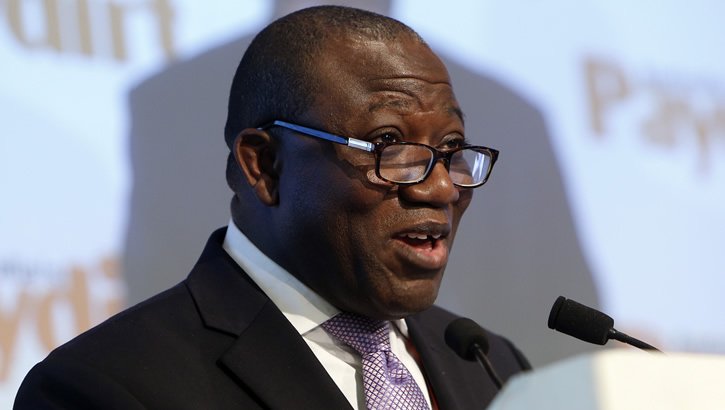
- While the Governor of Ekiti State, Kayode Fayemi, said on Tuesday that the removal of fuel subsidy will benefit poor Nigerians, financial experts argued that it would bring about increased hardships. Fayemi, while addressing journalists after the launch of the Nigerian Development Update by the World Bank in Abuja, said there was a need for proper communication on the economic status of the country. “Nigeria is not this boundlessly rich country. We are wealthy in several other respects. Our human capital is a source of strength. But in terms of this naira and kobo, we are not a rich country, and we need to do more to communicate that to the population in our country,” he said.
While the Governor of Ekiti State, Kayode Fayemi, said on Tuesday that the removal of fuel subsidy will benefit poor Nigerians, financial experts argued that it would bring about increased hardships.
Fayemi, while addressing journalists after the launch of the Nigerian Development Update by the World Bank in Abuja, said there was a need for proper communication on the economic status of the country.
“Nigeria is not this boundlessly rich country. We are wealthy in several other respects. Our human capital is a source of strength. But in terms of this naira and kobo, we are not a rich country, and we need to do more to communicate that to the population in our country,” he said.
According to him, the country wastes money on fuel subsidy, which does not benefit the poor.
He said, “Petrol subsidy does not really benefit the poor. It is the middle class and the rich who are beneficiaries of PMS (premium motor spirit) subsidy. And we have removed the diesel subsidy. We have removed the kerosene subsidy.
“These are things that ordinary people directly benefit from. And instead, we are living a lie. $120bn every month burnt. Over $1tn every year.”
Fayemi noted that there was an issue of trust between the people and the government, saying the government needed to be more accountable to the people.
He said, “But I do understand that there is a deficit of trust between us as leaders and the general populace in terms of what do we do with that N1.2tn even if we succeed in saving it.
“How do we ensure that it goes directly to the benefit of the people and reduce this inequality gap that we have in the country?
“That is the responsibility we must take as leaders and work on and provide enough evidence to the people by taking them along and ensuring that they take ownership of this change that we are requiring in order for us to build a better country. That is a price of leadership and we must be prepared to pay it.”
Financial experts who spoke to our correspondents in separate interviews, however, said Nigerians would face increased hardship with the removal of fuel subsidy, particularly if the government failed to ensure the establishment of relevant infrastructures.
They said infrastructures, such as a good transport system, functioning refineries, and steady poor supply, would curtail the effects of the subsidy removal on the masses.
A former President, Association of National Accountants of Nigeria, Dr Sam Nzekwe, called for the creation of refineries to reduce the dependence on fuel imports,
He said, “Immediately you remove subsidy, all facets of the economy will be affected. It is not only the elite that benefit from the subsidy, as generally claimed.
“The poor also benefit. The market woman, the barber, and every other ordinary person need fuel for transport and other things. So, all facets of society will be affected by the removal of the subsidy.
“Nigerians will suffer if certain things are not in place to help Nigerians cope with the removal of subsidy because Nigeria is a fuel-economy with everyone needing fuel for one thing or the other.”
Another financial expert, Temitope Omosuyi, noted that fuel is essential for transportation and power supply.
“If the government wants to remove the fuel subsidy, it should ensure that there is a good transportation system and adequate power supply,” he said.
According to him, if the government fails to fix the issues of transportation and power supply before removing fuel subsidy, there will likely be higher inflation, which means people will face a worse economic situation.
“If there will be an upward review of the PMS price without the essential services or infrastructure that will mitigate the impact of the upward adjustment on people, this will worsen the welfare of people, as there will likely be an increase in inflation rate,” Omosuyi added.



